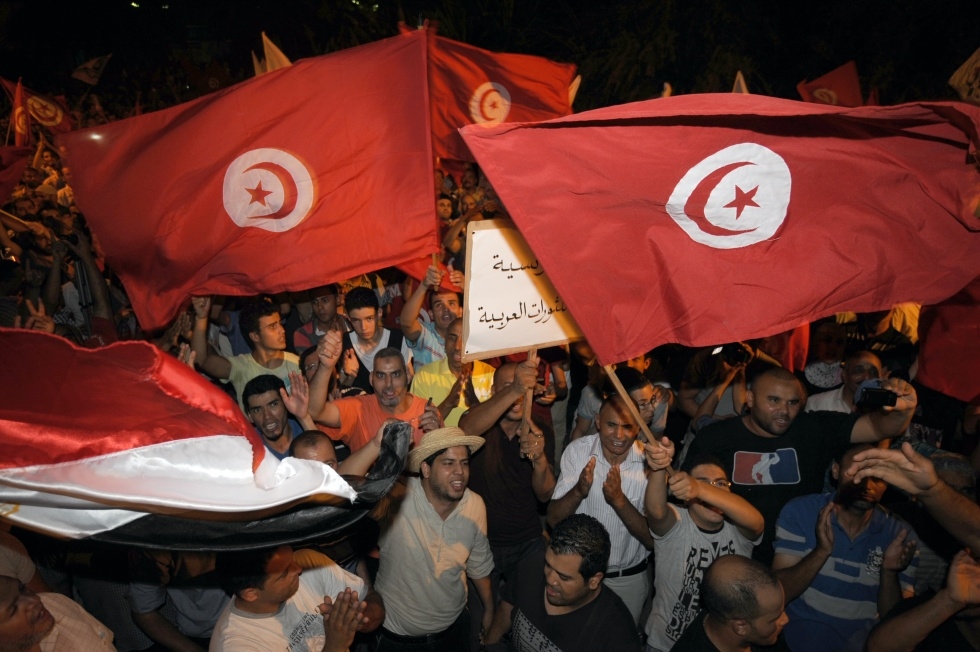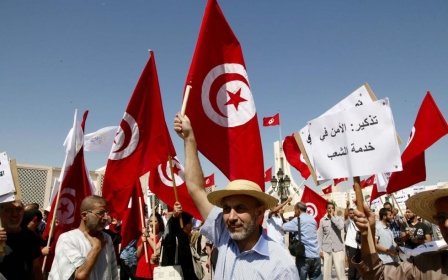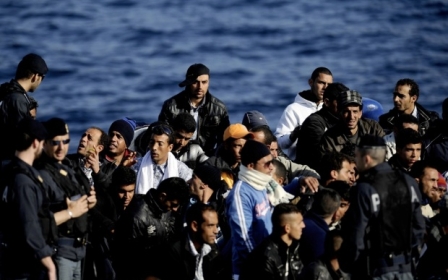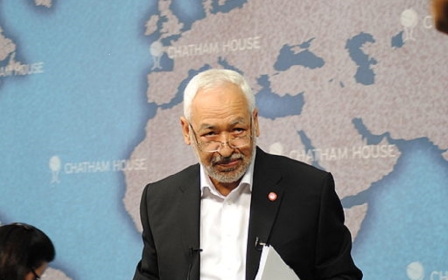Tunisian politician survives assassination attempt near troubled mountain region

A Tunisian politician jumped off the roof of his home in the city of Kasserine, near the Algerian border, on Monday to escape an apparent assassination attempt, according to media reports.
Mohamed Ali Nasri, most recently a member of the Nidaa Tounes party, told reporters from the hospital that at least five masked gunmen attacked his home on Monday. During his apparent escape from the gunmen, Nasri, 50, jumped from the roof of his two-story house, sustaining a broken leg, and then hid in a neighbour's home, Reuters reported.
Nasri's family and witnesses in his town confirmed the assassination attempt, according to Reuters.
Nasri was a member of Tunisia's Congress for the Republic - or Al Mottamar - party, led by interim Tunisian president Moncef Marzouki, but resigned from the party in 2012 to join Nidaa Tounes, the party founded by former Tunisian Prime Minister Beji Caid el Sebsi.
In recent months, Tunisian observers say there has been a general fear of assassination attempts ahead of the country's parliamentary elections scheduled for 26 October.
"This is the last challenge in terms of the democratic transition, so there is a lot at stake," said Radwan Masmoudi, president of the Washington, D.C.-based Center for the Study of Islam and Democracy which promotes freedom and good governance in the Arab world.
One of the focuses of Masmoudi's organisation has been to bring different political parties across the Middle East together into dialogue. After the Arab uprising, he said, they have focused its energies almost entirely on Tunisia "to see that we have one successful story emanating from the Arab Spring."
While there have been clear positive signs in Tunisia, including the constitution being agreed in January and regular dialogue between parties across the political spectrum, analysts describe a fragile transition still very much in its early days.
"Its no where near being out of the woods," said Monica Marks, a Tunisia-based freelance journalist and Oxford University doctoral candidate focused on the country.
Vague threats, high anxiety
Over the past month, Masmoudi said Tunisia's Ministry of Interior has been saying that it has information that terrorist groups are planning attacks on several individuals.
Which groups - internal or outside the country - would carry out such attacks and who would be targeted has remained unclear, he said.
But it is clear, Marks said, that September represents a "particularly dangerous month to be a Tunisian politician and politicians across both parties know that."
Rumours have been flying that neighbouring Algeria might try to derail the country's elections. Last week, however, Algerian President Abdelaziz Bouteflika welcomed Ennahda leader Rachid Ghannouchi with a red carpet in Algiers where the two reportedly discussed the regional security situation.
Ghannouchi told reporters after the meeting that he and Bouteflika agreed on the condemnation of foreign interference and believe in the need for dialogue between countries to solve the problems facing those countries.
Also last week, the New York Times reported that the UAE and Egypt carried out bombing raids against Islamist forces in neighbouring Libya. The UAE and Egypt have denied that they were involved in the raids. Still, Tunisians are rattled, Masmoudi said.
"We know that the UAE and Egypt don’t want democracy to succeed in Tunisia. They’ve said this publicly many times," he said. "They went as far as attacking Libya with airplanes, so it wouldn’t be surprising if they would try to foment a coup in Tunisia."
Amidst these whispers and fears, on Sunday night, the entire country lost electricity and was in the dark for what Masmoudi said he thought was the first time in 30 years.
"The next two months are going to very difficult and people are going to be very worried," he said. "There will be some violence and maybe even some assassinations, but I think that violence will not derail the elections."
Political upheaval in 2013
Still fresh in Tunisians' minds will be the political upheaval the followed two high-profile assassinations of two politicians last year.
Mohammed Brahmi and Chokri Belaid, two opposition leaders from the left-wing Popular Front, were allegedly shot with the same gun by Boubacar Hakim, a Salafist whom Tunisian authorities were already investigating on suspicion of smuggling weapons from Libya, Tunisia's Interior Minister Lotfi Ben Jeddou told reporters last July.
"The same 9mm automatic weapon that killed Belaid also killed Brahmi," Jeddou said.
While Jeddou named Hakim as the main suspect, several other individuals were also said to be suspected of being involved, including Kamel Gadhgadhi, a senior leader of Ansar al-Sharia Tunisia apparently suspected of killing Belaid. In February, after a shoot out between police and members of Ansar al-Sharia Tunisia in a rented house in the Tunis suburb of Raoued, Jeddou released a photograph of Gadhgadhi and said he had been killed in the stand off.
The assassinations triggered large-scale protests in the country and plunged the country into political turmoil which eventually led to a national dialogue and saw the Ennahda party cede power to a technocratic, non-partisan government.
Marks points out that before the Tunisian uprising in 2011, assassinations were unheard of in the country. "Now we are talking about our third one," she said.
"Where it really matters is what it does to the collective society in a crtitical moment for the transition. It puts people in a fear space," Marks said.
In addition to the timing of the alleged assassination attempt, the location of Monday's incident will likely raise concerns. Kasserine is just east of Tunisia's mountainous Chaambi region near the Algerian border where Tunisian security forces have been battling dozens of militants hiding in the remote area since late 2012.
Authorities have said all along that the militants in the mountains were linked to al-Qaeda and had fled France's military intervention into Mali in 2012, but it wasn't until a failed assassination attempt on Interior Minister Ben Jeddou's Kasserine home this June that al-Qaeda in the Islamic Maghreb took credit for any attacks.
In early August, the US announced it planned to sell Tunisia a dozen Black Hawk attack helicopters worth an estimated $700 million to help the country as the deteriorating security situation in Libya appeared to be spilling over.
The news came as the Tunisia government said it was increasing security in a military buffer zone in the southern part of the country, which contains the country's borders with neighbouring Libya and Algeria, as well as in the coastal border line.
Middle East Eye propose une couverture et une analyse indépendantes et incomparables du Moyen-Orient, de l’Afrique du Nord et d’autres régions du monde. Pour en savoir plus sur la reprise de ce contenu et les frais qui s’appliquent, veuillez remplir ce formulaire [en anglais]. Pour en savoir plus sur MEE, cliquez ici [en anglais].




